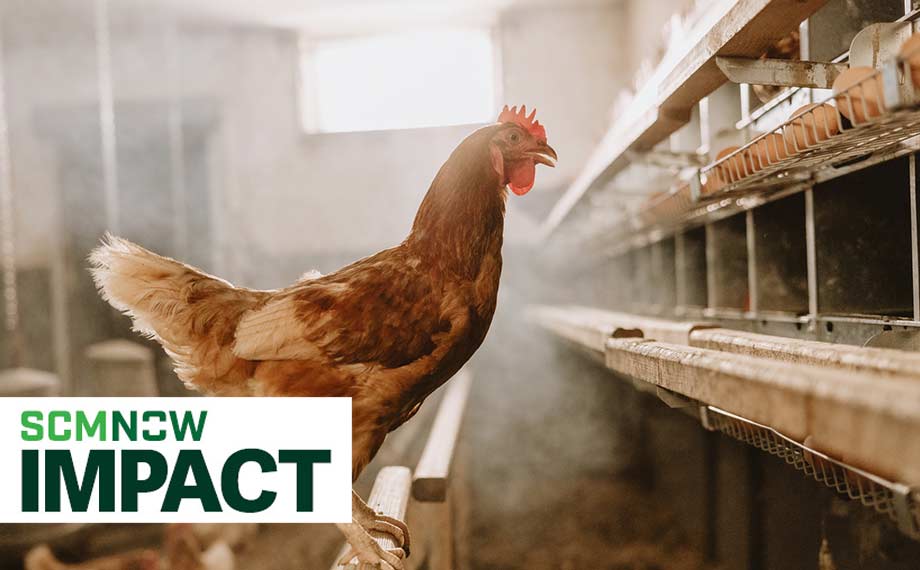The egg market is cracking under pressure. A sharp increase in prices is forcing consumers to make tough choices at the grocery store and demonstrating the complex interplay of our food supply chains. This week in the news, the surge is prompting a closer look at the systems that bring food from farm to table.
USA Today reports that the cost of eggs is soaring by as much as 20%. Though inflation and demand are factors, they aren’t the primary culprits: The USDA cites a devastating bird flu outbreak that has torn through poultry flocks and seriously strained supply. The virus has affected a staggering 136 million birds. Per Forbes: As of January 24, there were eight bird flu outbreaks across California, Indiana, Missouri, North Carolina and Ohio. Sadly, much of the poultry infected with the virus has been slaughtered to avoid spreading the disease.
Grocers such as Publix and Whole Foods are reacting to the shortage by limiting the number of cartons each customer can buy. As such, Axios suggests that looking beyond the standard food store chain might be the best bet for consumers: “Local farm markets are more reliable, even outside the spring and summer peak laying season, and small operators can more easily protect their flocks. When supermarket eggs went for 99 cents a dozen, $7 farm eggs seemed like a splurge — and a barrier to entry. But now with comparable prices, there's even more incentive to shop local and support small farms.”
Those of us in the United States can take a lesson from our neighbors to the north, who have not been affected by the bird flu outbreak or the resultant high prices: “Canada’s supply management system — which regulates egg production, imports and prices — has helped keep the cost of eggs relatively stable,” reports Global News. Also, farms are smaller, and farmers generally share information with each other, a vital step in supply chain visibility. On the other hand, the U.S. system is more market-driven and “highly industrial,” which leads to volatile prices, Global News continues. In short, egg prices in Canada may be higher as a baseline, but they’re more predictable.
Planning is essential
Although instabilities are a part of life — and certainly part of supply chain — there are ways that you can be better prepared to handle them swiftly and efficiently. Planning for supply chain disruptions and managing inventory are crucial skills for any supply chain professional. By earning ASCM’s APICS Certified in Planning and Inventory Management (CPIM) designation, you’ll have the expertise to effectively prepare for and manage risk, plus use technology to streamline overall supply chain processes. CPIM content covers sales and operations planning, supply and demand, detailed schedules, inventory management, and much more. And industry professionals holding a CPIM earn up to 23% more than their peers.
You can save big when purchasing learning systems and exams together. An ASCM membership is also included! Get started today.



